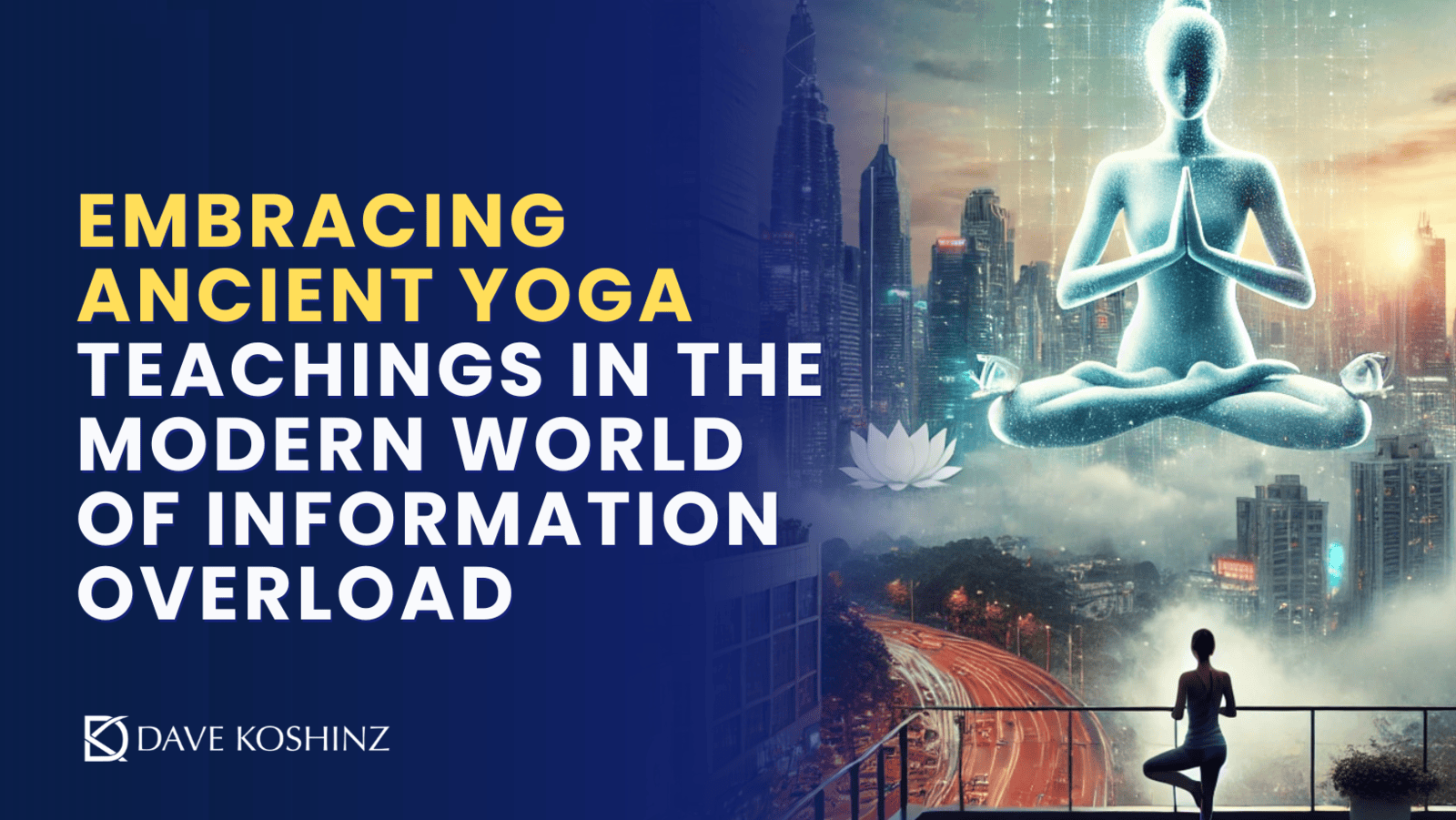
We're inundated with information yet often feel a profound disconnect from our own bodies and minds. As someone who trained under four distinct yoga lineages, I'm eternally grateful for Srivatsa Ramaswami, Pattabhi Jois, Desikachar, and Iyengar. There have been many other teachers that were instrumental to my evolution, but these four were key to my evolution. Many ancient teachings of yoga offer invaluable tools for happiness, success, and embodiment. These studies, along with teaching my own synergy of yoga practices, have been fundamental to my life in all ways. While yoga philosophy might seem esoteric or even outdated, it is remarkably relevant when approached as flexible guidance rather than rigid prescription.
The Timeless Principles of Yoga
At the heart of yoga are principles that transcend individual lineages and speak to the universal human experience. These include:
Mind-Body Connection: Recognizing the inseparable link between mental and physical well-being.
Mindfulness and Presence: Cultivating awareness of the present moment to reduce stress and enhance clarity.
Ethical Living: Adhering to moral guidelines that promote harmony with oneself and others.
Self-Discipline: Committing to personal growth through consistent practice and effort.
Inner Peace: Seeking tranquility not through external achievements but through internal balance and understanding.
These principles are as applicable today as they were thousands of years ago, providing a counterbalance to the distractions and pressures of contemporary life.
Krishnamacharya: The Source of Modern Yoga Lineages
Many of today's yoga traditions can be traced back to Tirumalai Krishnamacharya (1888–1989), often hailed as the "Father of Modern Yoga." Born in India, Krishnamacharya was a master of yoga, Ayurveda, and philosophy. His teachings have profoundly influenced the way yoga is practiced worldwide. Notable students of Krishnamacharya who founded or significantly influenced their own lineages include:
K. Pattabhi Jois (1915–2009; lived to age 93)
- Developed Ashtanga Yoga, a dynamic and physically demanding practice synchronizing breath with movement.
- Developed Ashtanga Yoga, a dynamic and physically demanding practice synchronizing breath with movement.
B.K.S. Iyengar (1918–2014; lived to age 95)
- Founded Iyengar Yoga, emphasizing precision and alignment in postures.
- Founded Iyengar Yoga, emphasizing precision and alignment in postures.
Indra Devi (1899–2002; lived to age 102)
- One of the first female yoga teachers in the West, she played a key role in popularizing yoga globally.
- One of the first female yoga teachers in the West, she played a key role in popularizing yoga globally.
T.K.V. Desikachar (1938–2016; lived to age 78)
- Krishnamacharya's son, who focused on individualized therapeutic yoga.
- Krishnamacharya's son, who focused on individualized therapeutic yoga.
A.G. Mohan (born 1945; currently age 78)
- Co-founder of the Krishnamacharya Yoga Mandiram, promoting holistic yoga practices.
- Co-founder of the Krishnamacharya Yoga Mandiram, promoting holistic yoga practices.
Srivatsa Ramaswami (born 1939; currently age 84)
- A long-time student of Krishnamacharya, known for teaching Vinyasa Krama Yoga, emphasizing the synchronization of breath and movement with attention to sequencing.
- A long-time student of Krishnamacharya, known for teaching Vinyasa Krama Yoga, emphasizing the synchronization of breath and movement with attention to sequencing.
For reference, the average life expectancy for men in India is around 69 years. Notably, many of Krishnamacharya's students have lived significantly longer, which some might attribute to their lifelong dedication to yoga and its holistic approach to health.
These lineages, while distinct in their approaches, carry forward Krishnamacharya's core teachings and adapt them to meet the needs of diverse practitioners.
Why Ancient Wisdom Matters Today
In an era characterized by constant stimulation and a surplus of information, the ancient wisdom of yoga offers a pathway to reconnect with ourselves. The practice encourages us to slow down, breathe, and become aware of our internal states. This is not about escaping modern life but enhancing our ability to engage with it more thoughtfully and effectively.
Yoga teaches us to embrace impermanence, reduce attachment to material possessions, and find contentment within. These lessons are particularly pertinent when modern society often equates success with external achievements and accumulation.
Applying Yoga Principles in Daily Life
You don't need to commit to intense physical postures or adopt a new belief system to benefit from yoga's teachings. Here are practical ways to integrate its principles into your everyday life:
Mindful Breathing: Take moments throughout the day to focus on your breath, grounding yourself in the present.
Ethical Reflection: Consider how your actions affect others and strive to live with kindness and integrity.
Physical Activity: Engage in regular movement that connects you with your body, whether through yoga, walking, or any form of exercise you enjoy.
Self-Inquiry: Set aside time for meditation or journaling to explore your thoughts and feelings without judgment.
Digital Detox: Reduce screen time to minimize distractions and create space for real-world connections and experiences.
By holding these practices as gentle guidelines rather than strict rules, you allow flexibility and personal adaptation, making them more sustainable and meaningful.
Conclusion
The ancient teachings of yoga offer a rich tapestry of wisdom that is remarkably suited to address the challenges of our modern world. They remind us that amidst the noise and haste, there is profound value in turning inward, cultivating self-awareness, and living intentionally. I believe that these timeless principles can help us navigate the complexities of contemporary life with grace and authenticity.

